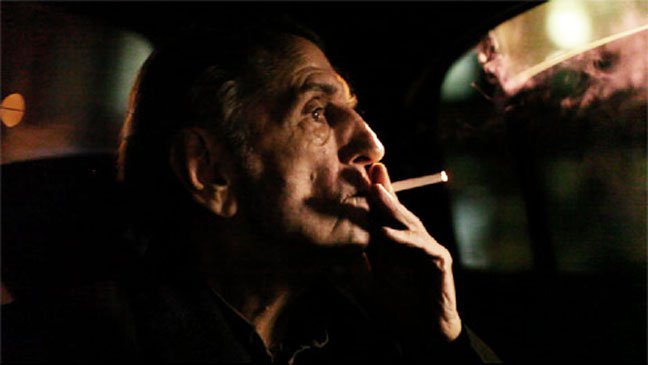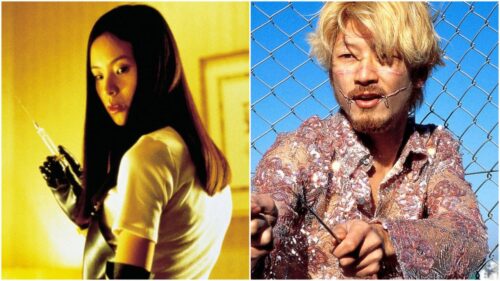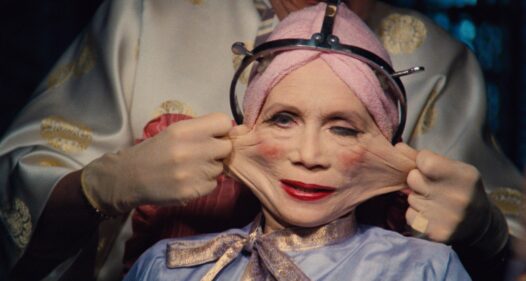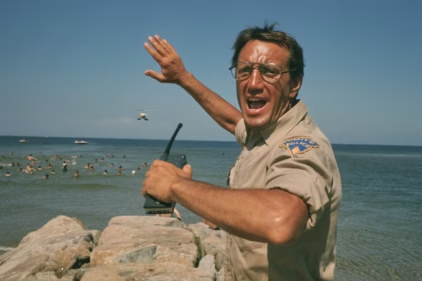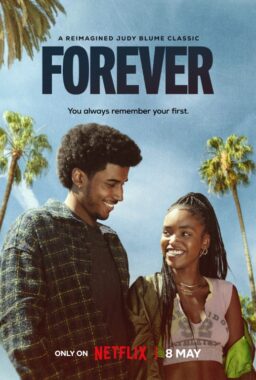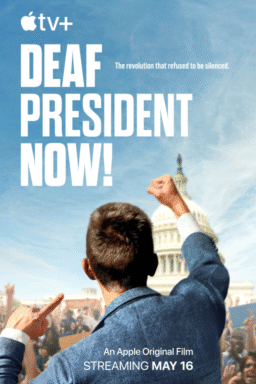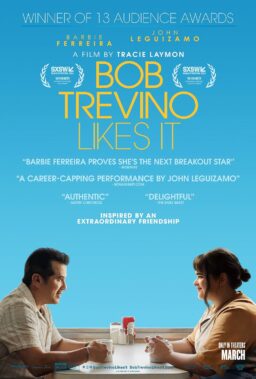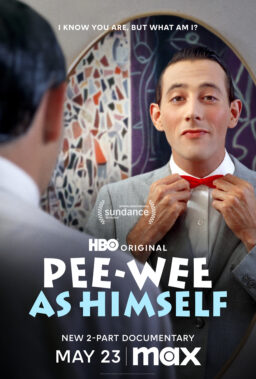Legendary character actor Harry Dean Stanton passed away at the age of 91. Sheila O’Malley wrote our obituary, but we wanted to let other members of our staff share their thoughts on such an irreplaceable screen presence.
BRIAN TALLERICO
2017 has been particularly cruel in the way it has taken away so many pillars of the American film industry. Sam Shepard, George Romero, Bill Paxton, Harry Dean Stanton—these men felt like they were a part of the foundation of cinema for the last half-century. They were always there, grounded and sincere in their creative outputs. In particular, Stanton felt like he knew something other people did not. There was a wisdom in his performances, a grounded sense of life-well-lived that others often seek to replicate but rarely do with an ounce of the truth he could muster. That’s the word for me with Stanton: truth. He never felt like he was putting on a show. He saw acting as finding truth instead of playing dress-up. And he worked with filmmakers who had the same artistic sensibility—Ridley Scott, David Lynch, Wim Wenders, and the upcoming beautiful elegy he made with John Carroll Lynch called “Lucky.” In that film, his title character is fully aware that the door of his life is closing. With no sense of melodrama or Hollywood manipulation, he reaches for a sense of knowledge and even enlightenment before it shuts. It’s a poignant, beautiful movie that will be all the more powerful when it’s released later this month. Stanton never felt like was appeasing a sense of stardom or what an actor should or shouldn’t be. It’s so movingly perfect that his final performance not only may be his best but fits so perfectly into the confident, foundational aspects of his entire career.
B.J. BETHEL
If you were a youngster in the mid-’80s, reconciling that the man who was Brain in “Escape in New York” also played the broken-hearted father in “Pretty in Pink” is difficult. How could the same man be both characters? Yes, he was the greatest character actor since Edmund O’Brien, but he was also the character you knew. His colloquial Kentucky cadence and way of firing off a sentence with both authority and authenticity, the posture, the stoic and iconic visage, which told its own stories with the lines and eyes—he was truly the most genuine presence in contemporary film because he could be any character while being himself. If being a great actor means performing like you aren’t acting but living, Stanton should have Jack Nicholson and Tom Hanks’ Oscars, and maybe Walter Brennan’s for good measure.
My two favorite Stanton scenes are his two most familiar to mainstream audiences. In John Milius‘ “Red Dawn,” a movie that suffered from the opening credits a case of schizophrenia between action farce and propaganda, it finally gained footing when Patrick Swayze and Charlie Sheen went to visit their character’s father, played by Stanton, who is in a Communist re-education camp. Helped to the fence line with a shoulder over another man, his authority apparent when he orders his human crutch away. “Let me look at ya,” he said to his son. “I was tough on ya,” Stanton utters, and you get a sense of how high school small-town jocks can become a guerrilla army outfit. It’s so short, but to the point, and so perfect. After a lecture and a final goodbye, he sends his sons off before the guards see them. As they walk away, Stanton’s stoicism disappears into a rage as he screams as they leave, “Avenge me!” He’s in the film for just moments, but he defines its lead actors and the dire mood and the movie’s raison d’etre—the futility of war, leaving only hate and blood. Vengeance was all they had left.
The second was “The Avengers,” playing a security guard who spotted Mark Ruffalo’s Hulk falling from the sky and landing in an abandoned industrial area, a scene famous for its humor and for Stanton’s unexpected cameo. “Are you an alien?” Stanton asks directly, as you would expect. Ruffalo’s Banner retorts he isn’t, followed by Stanton’s “Then son, you have a condition.” After the buildup for the Hulk’s first smashing moment, his terrorizing of the Black Widow, Stanton brings an acceptance of Banner to both who and what he is, a bit of advice, with a rural wit and bit of snark. The Hulk keeps his ferocity but gains his humanity thanks to a minute with Stanton.
It’s a small role for a giant of film, but as he always did, whether he was playing to the side in only one scene or fronting an indie, Stanton always made the movie he was in.

COLLIN SOUTER
Harry Dean Stanton always had a recognizable face, but it was the kind of face that could be made to fit into any role; one of those actors who was his own kind of Everyman. He was the cop, the derelict, the leader, the space traveler, the con man, the loner, the cowboy, the poet, the barfly, the father, the estranged brother. You could tell by looking at him that he was both a searcher and man with all the answers. At least three films come to mind that find Stanton alone in a desert or some rural landscape, as much a wanderer as a man who had arrived. The final shot in “Lucky,” which finds Stanton in what appears to be his natural habitat, is one of cinema’s most perfect moments, a poetic send-off to one of our greatest actors and every man he became.
SCOUT TAFOYA
When I was a kid my dad always pointed out a few things to me when we were watching movies. He always took a second to tell me who the great character actors were. Warren Oates, Timothy Carey, Dwight Yoakam, Ernest Borgnine, Joe Spinell, Robert Ryan, Lee Marvin, and especially Harry Dean Stanton. I knew the importance of Stanton’s weathered, bedraggled charisma before I could do multiplication. I watched him very young in “Alien” and spotted him in everything from then on, honing in on his wind-worn features, knowing that honesty followed him. No matter how bad the film, he was always a bright spot. And if it was a masterpiece, he was calmly smoking off the side, used to the presence of greatness. He lived with it every damn day. We don’t seem to be discovering people like Stanton anymore, people who lived hard, simple lives before they started appearing in movies. He carried himself like a man who’d lived twice. He’s in more masterpieces than you could count on eight hands. Seeing him walk on screen was like seeing an old friend.
ANATH WHITE
Harry Dean Stanton’s passing leads me to some personal recollections … One is of his second loves—music—and the truly kick-ass band he had for years, which regularly played around Los Angeles. In 1999, they were performing in a small Hollywood club on New Year’s Eve, and what better way to celebrate? So my then-husband and I, with one of our best friends, packed in with the others, enjoying their rambunctious enthusiasm way into the wee hours, as they played set after set. Their leader Harry Dean, even then not so young a man, did not want to quit. Nobody else did either.
Two summers ago, I was invited to a private screening of “Harry Dean Stanton: Partly Fiction,” a portrait by Sophie Huber. Harry Dean attended the small after-party, held on a rooftop in downtown Los Angeles. He appeared quite frail, which surprised me. I suppose I thought of him as “timeless.” How could he possibly be aging? He was standing off by himself with a young man, perhaps his driver, keeping him in his sights. I felt I should walk up and speak to him. But, never good at that, I didn’t know what to say that wouldn’t seem awkward or kissy or weird.
This made me recall Ebertfest 2011, when Roger Ebert passed me a Post-it. “Go talk to her,” it said. He gestured to the very young South African actress, Khomotso Manyaka, star of “Life, Above All,” who was sitting alone. Of course I went over to chat with her, after which Roger gave me his thumbs up. Right then on that rooftop I so needed Roger to encourage me over to Harry Dean. But Roger wasn’t there.

Thinking now of Harry Dean Stanton brings me to my dear friend, the fine actress Grace Zabriskie, with whom he did so much work, including “Wild at Heart,” “Twin Peaks,” and “Big Love.” Over to Grace:
As many times as I worked with him, drank with him, sat and talked with him, watched him work on set, enjoyed him on screen—somehow the image that comes to me when I think of him is from something that happened one night on set, late, trying to finish before dawn. He and Bill Paxton were outside, in the compound on “Big Love.” I was off-camera, waiting for my brief entrance in their long scene. The two of them were in silhouette, facing each other. I stared at them, amazed. I seemed to be looking at the profiles of a trim, middle-aged man, and a taller, much younger man, in his mid to late twenties. The younger man was Harry Dean. It took seeing him that way, from some distance, silhouetted, to see, truly, the way he carried himself. I was shocked by the impenetrability of the effect. I felt at the time that I had been given a gift of some sort. I told him about this experience maybe a year later, not mentioning the “gift” part, probably. He was pleased, I think. I will miss him for so many reasons.
SEAN MULVIHILL
There was a timeless quality to Harry Dean Stanton. He had the kind of face that made you wonder if he was ever truly young. Though his career wasn’t filled with leading roles, it still feels so wrong to just refer to him as “a character actor.” He wasn’t a character actor, he was Harry Dean Stanton. The veteran actor had a screen presence that smelled of whiskey and cigarettes even if he was playing a character that we never see smoke or drink.
In an acting career that spanned over 60 years, Stanton was a part of every kind of movie imaginable. He was a frequent collaborator with David Lynch, appearing in “Wild at Heart” and most recently “Twin Peaks: The Return.” He made arthouse films, like “Paris, Texas” with Wim Wenders. He appeared in sci-fi classics, such as “Escape from New York” and “Alien.” He was willing to appear in daring, unusual movies that defy genre classification such as “Repo Man” and “Seven Psychopaths.” Hell, Stanton even entered the world of comic book movies with a memorable cameo in “The Avengers.” It’s impossible to envision any of these movies without the presence of Stanton no matter the size of the role. In just a few short seconds, he could leave an indelible mark on the screen.
And yet with a face that youth seemed to bypass and look that wouldn’t seem out of place in any dive bar in America, Stanton was capable of conveying great warmth with his performances. That warmth is present in the two performances that he gave this year in “Twin Peaks: The Return” and “Lucky,” the directorial debut of John Carroll Lynch which opens later this month. Reprising his role as Carl Rodd in “Twin Peaks: The Return,” the 91-year-old actor played the owner of the trailer park on the outskirts of Twin Peaks who showed great concern for those in his immediate vicinity, be they the victims of domestic violence or selling their blood to make ends meet. In “Lucky,” Stanton defies the recent trend of aging actors playing characters confronting their own mortality and passing along words of wisdom to a plucky little underling. Instead he plays a character of routine, one who likes to attend the same diner in the morning and the same bar at night. Each features the veteran actor singing in his aged, raspy voice that stirs the soul.
He may have left this plane of existence, but he leaves behind a lifetime of fantastic work and two final performances that are a swan song of empathy and quiet beauty. Smoke ‘em if you got ‘em, because there’s nobody to take the place of Harry Dean Stanton.

DONALD LIEBENSON
Roger Ebert said it best: In his four-star review of “Uforia,” he wrote, “It doesn’t have big stars, unless you are the kind of movie lover for whom … Harry Dean Stanton guarantees a movie will at least be interesting.”
My two favorite Harry Dean Stanton moments:
His fleeting but indelible appearance in “The Rose.” He is the country music legend not at all impressed with Bette Midler’s rock goddess and who admonishes her for “talking trash to my boy.”
Second, from the above-mentioned “Uforia,” as con-man Brother Bud whose philosophy is: “Everyone must believe in something. I believe I’ll have another beer.”
EMMA PIPER-BURKET
I spent last night listening to Harry Dean Stanton sing. His voice, his physical appearance, the way he moves is all deeply familiar in such a basic human way. That’s not to say he is an archetype—all of his qualities are relatable because they are so uniquely him; what you read of his words, or hear of his speech, what you see of him onscreen can only be Harry Dean Stanton.
I read an article recently about the actual correlation between rising CO2 levels in the atmosphere and decreased nutrients in plants (and therefore also the food that we eat). Now this might be a stretch, but I sometimes get this sinking feeling that a similar phenomenon is happening in people. That people now are made up of less, which is perhaps why losing someone who is made up of so much hurts a little more. There might not be enough nutrients on the planet to make another Harry Dean Stanton.
PETER SOBCZYNSKI
This past spring, the Chicago Critics Film Festival, a concern that I am proud to be a part of, screened the acclaimed film “Lucky” as part of its lineup. I wrote an essay for the program booklet celebrating its star, the one and only Harry Dean Stanton. As part of this tribute to Stanton, I would like to offer, with only a minor tweak or two, what I wrote back then as a way of showing my admiration and affection for one of the all-time great character actors to ever grace the screen. Beyond what I have written here, I offer three brief thoughts.
1. His last film, “Lucky,” will be released in a couple of weeks and if it is playing at a theater near you, I admonish you to rush out and see it. If it isn’t playing anywhere near you, I implore to find someplace that is showing it and take a road trip. I promise you that it will be worth it.
2. Although I list many of Stanton’s films in this piece, one that I neglected to mention was a quirky 1985 indie comedy named “Uforia.” I have no idea what its availability is like these days—it was difficult to track down even when it first came out—but those searching for Stanton films to watch for their own personal tributes should try to uncover it for themselves if possible because it is a delight.
3. If Stanton is not nominated for the Best Actor Oscar for his work in “Lucky,” then it will prove beyond the shadow of a doubt that the Academy Awards are nothing more than a hollow sham. (By the way—I would be saying the exact same thing were still alive today.)

The late Roger Ebert once wrote that he was creating what he called The Stanton-Walsh Rule, which stated that “no movie featuring either Harry Dean Stanton or M. Emmet Walsh in a supporting role can be altogether bad.” When it comes to Stanton’s resume, which includes more than 100 features, even the lesser endeavors temporarily come to life when he comes into a scene, thanks to his distinctive hangdog look and prodigious acting talents. On the other hand, when he is working with worthwhile material and with filmmakers who know their stuff (and his filmography has seen him working with the likes of Alfred Hitchcock, Sam Peckinpah, Francis Ford Coppola, John Huston, John Carpenter, Wim Wenders, John Milius and David Lynch) you would be hard-pressed to find a more mesmerizing on-screen presence than his. If anyone wanted to put together a Harry Dean Stanton Film Festival, the program would be all killer and no filler; the possible hiccup would be in trying to decide which of the numerous classics and cult favorites in his filmography would make the cut and which would be held back for a later edition.
He began his screen career with an unbilled bit part in Alfred Hitchcock’s docudrama “The Wrong Man” (1957), working steadily in small roles on both the big and small screens over the next decade, mostly in westerns and crime stories that were able to make effective use of his distinct look. By the mid-‘60s, he was turning up in more notable films like “Cool Hand Luke” (1967) and “Kelly’s Heroes” (1970). At the same time, he began getting cast in films made by an emerging breed of iconoclastic filmmakers who preferred his air of absolute authenticity over the kind of blandly handsome types that populated most films at the time. Monte Hellman gave him a supporting part in his existential western “Ride in the Whirlwind” (1966), beginning an association that would also include appearances in “Two-Lane Blacktop” (1971) and “Cockfighter” (1974). Sam Peckinpah cast him as a member of Billy the Kid’s gang in the cult classic “Pat Garrett & Billy the Kid” (1973) and John Milius put him in his directorial debut, “Dillinger” (1973). He turned up as an FBI agent in “The Godfather, Part II” (1974) and he had one of his biggest roles to date as part of the ill-fated crew of the Nostromo in “Alien” (1979).
As the ‘80s began, demand for Stanton was increasing with turns in such films as “The Black Marble” (1980), “Private Benjamin” (1980), “Escape from New York” (1981), “One from the Heart” (1982) and “Christine” (1983). For first-time filmmaker Alex Cox, he co-starred with Emilio Estevez in the cult sci-fi comedy classic “Repo Man” (1984) and stole every single scene he was in as a world-weary car repossessor showing the ropes to his new protégé while tracking down a 1964 Chevy Malibu with a big surprise in the trunk. For rising German director Wim Wenders, he got his first true leading role when he appeared as a largely silent drifter who returned after a mysterious four-year absence and struggled to reconcile with the wife and young son that he abandoned in “Paris, Texas” (1984). Although he had precious little actual dialogue in the film, he was able to convey a lifetime of pain, shame and hurt with a single glance. The only thing more astonishing than his performance is that his work did not receive any of the traditional industry accolades that it so richly deserved.
Over the next couple of decades, Stanton turned up in a wide variety of films in a wider variety of roles. Some of these were wonderful, such as his appearances in a number of projects that he worked on with David Lynch such as “Wild at Heart” (1990), “Twin Peaks: Fire Walk With Me” (1992), “The Straight Story” (1999), “Inland Empire” (2006) and the recent third season of “Twin Peaks,” an appearance as Saul/Paul in Martin Scorsese’s “The Last Temptation of Christ (1988) and a recurring role on the HBO series “Big Love.” Some of them were quite popular—his performances in the war film “Red Dawn” (1984) and the Molly Ringwald hit “Pretty in Pink” (1986) exposed him to a new generation of moviegoers. In all of these films, he brings a presence that comes at least as much from him as it does from the script—probably more in most cases. Almost invariably, whenever one of his characters leaves the screen, most viewers want to follow him out.
One exception to that notion is his latest film, “Lucky,” and that is largely because he is front-and-center for virtually the entire running time, his first lead role in a movie since “Paris, Texas.” Set in a small desert town, he plays a 90-year-old man who attributes his shocking good health (despite a pack-a-day habit) to his self-sufficiency and willingness to stick to his daily regimen. He also claims to be an atheist but as the end theoretically draws near, the idea of entering a great void now fills him with unease. The film, the directorial debut of actor John Carroll Lynch, is concerned less with plot than with character. In the lead role, Stanton is such a perfect fit that it is simply impossible to think of anyone who could have remotely approximated what he does here. Although not precisely a one-man show—there are standout bits from actors as varied as Tom Skerritt and David Lynch—it is Stanton’s show all the way, serving as a beautiful reminder of just how much of a genuine screen presence he possesses. It is tempting to consider a film like “Lucky” to be some kind of career summation but one hopes that Stanton will continue to be as surprisingly resilient as his character. We should be so lucky.
